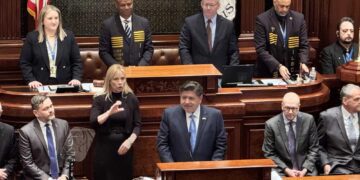Can information be a campaign contribution that violates federal law? If you think so, writes Jacob Sullum, then you are interpreting campaign finance laws in a way that makes them unconstitutional:
Some of the president's critics have argued that the Trump Tower meeting violated a federal law that prohibits foreign nationals from contributing "anything of value" to a political campaign. But that interpretation is controversial. As Special Counsel Robert Mueller noted in his report on Russian attempts to influence the 2016 presidential election, "No judicial decision has treated the voluntary provision of uncompensated opposition research or similar information as a thing of value that could amount to a contribution under campaign-finance law." Given that uncertainty, it would be hard to make the case that Trump Jr. knowingly violated the law, which is required for a conviction.
Furthermore, if the law were understood to cover situations like this, it would effectively criminalize constitutionally protected speech. Mueller noted that "such an interpretation could have implications beyond the foreign-source ban," such as limits on campaign contributions by Americans, and "raise First Amendment questions."
Trump, in other words, is on solid ground in arguing that such contacts are legal. […]
When politicians or their minions spread information about their opponents that is irrelevant, misleading, or false, Pelosi seems to think, that is just democracy in action, as long as no foreigners were involved. But when they use information from a foreign source, no matter how accurate or germane it is, our political system is in grave danger. To be fair to Pelosi, that view seems to be widely shared within Congress, the intelligence community, and the mainstream press. That doesn't mean it makes sense.
[Jacob Sullum, “Is Accepting Information about a Political Opponent from a Foreigner ‘an Assault on Our Democracy’?” Reason, June 12]







